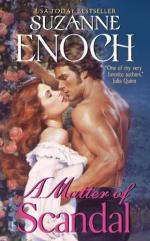|
This section contains 8,683 words (approx. 29 pages at 300 words per page) |

|
SOURCE: Slinn, W. Warwick. “Language and Truth in The Ring and the Book.” Victorian Poetry 27, nos. 3-4 (autumn-winter 1989): 115-33.
In the following essay, Slinn analyzes the relationship between “human language and poetic truth” in The Ring and the Book.
This essay will focus on the textualization of meaning in The Ring and the Book and thus on the poem as a critique of transcendence.1 Critics have often noted the concerns in the poem with both truth and language but generally have identified these in terms of a separation between human falsehood (error-ridden language) and divine (transcendent) truth.2 My point is that this opposition is conflated. There is no separate divine truth in the poem, no dramatized position that corresponds to the position of, for example, Milton's God in Paradise Lost, no moment that escapes discourse. Unity, any singular truth, is deferred. A conclusive telos, towards which all events...
|
This section contains 8,683 words (approx. 29 pages at 300 words per page) |

|


